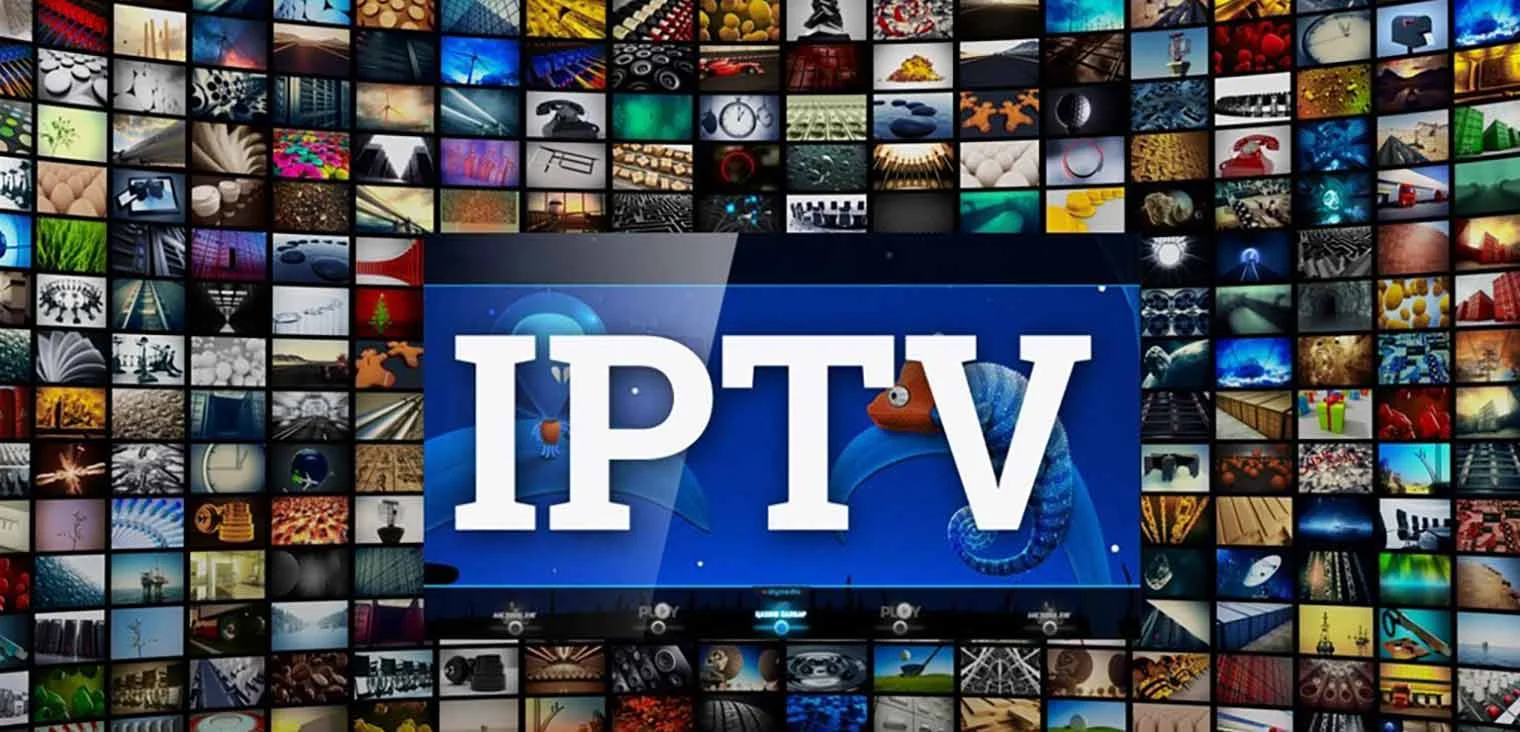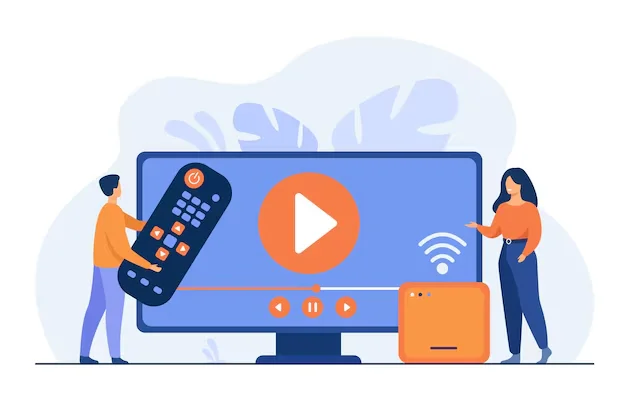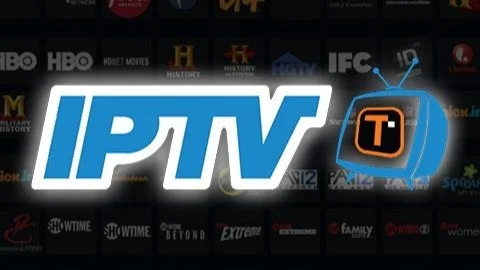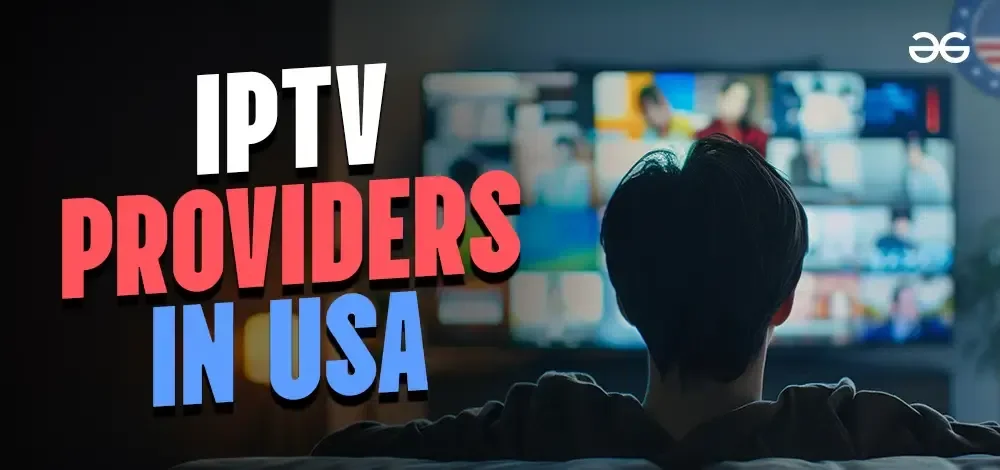So What Exactly *Is* This IPTV Thing People Keep Talkin’ About?
Alright, let’s get down to it. You hear ‘IPTV’ thrown around, maybe saw it online, maybe a buddy mentioned it. But what’s the actual deal? Is it just fancy talk for watchin’ TV on the internet? Well, kinda, but not really the whole picture. IPTV stands for Internet Protocol Television. See? Already sounds complicated, don’t it? But break it down: ‘Internet Protocol’ is just the way data gets sent over the web, like emails or websites. ‘Television’ is, well, television. So, it’s TV delivered using the same pipes as your internet connection, instead of through old-school cables or satellite dishes pointin’ at the sky.
Why should you even care, you ask? Good question. The big draw is usually gettin’ a ton more channels than standard cable for less coin. Like, way more channels sometimes. We’re talkin’ international stuff, sports packages that usually cost an arm and a leg, movie channels, kids shows, the whole shebang. Plus, a lot of these IPTV services offer video-on-demand (VOD), kinda like Netflix but often included in the package, with movies and whole TV series ready to watch whenever you feel like it. No schedules, no waitin’. That sounds pretty decent, right?

But here’s the kicker, it ain’t all sunshine and rainbows. Because it uses your internet, the quality of your stream depends heavy on your internet speed *and* how good the provider’s setup is. A slow connection or a provider cuttin’ corners means buffering, stuttering, or just plain not workin’. That’s why findin’ reliable streaming is key, especially here in the USA where there’s a million options, some good, some… well, not so much. It’s not like pickin’ between Coke and Pepsi; there’s a massive difference in quality and reliability between providers. Some are run slick as a whistle, others feel like they’re held together with duct tape and hope. You need somethin’ that actually works when you wanna kick back and watch the game or your favorite show. Nothin’ worse than the picture freezin’ right at the good part, is there? Check out a basic IPTV guide if you’re just startin’ out, it helps wrap your head around the basics. The main site, iptv4cheap.com, also has loads of info if you dig around a bit. It’s about ditching the high costs and limited options of old TV, but doin’ it smart so you don’t end up frustrated.
Think about how you watch TV now. Tied to long contracts? Payin’ for hundreds of channels you never watch? IPTV offers a different way, potentially more flexible and cheaper. But is it legal? That’s a whole other can of worms, dependin’ on the provider and the content. Some are perfectly legit, reselling streams they have rights to. Others operate in kinda a gray area, maybe offering channels they shouldn’t. You gotta be aware of that. The focus here is on finding providers known for *reliability* within the US market, services that aim to give you a smooth experience. It’s a trade-off sometimes, navigatin’ this newer way of watchin’ TV. But for many, the potential rewards – choice, cost savings, features – make it worth lookin’ into. Just gotta do your homework, ya know?
Is Findin’ a Solid IPTV Provider in the States Really That Hard?
So, you’re sold on the idea, maybe? Loads of channels, VOD, sounds good. Now comes the tricky bit: pickin’ a provider. Is it tough to find one that’s actually reliable here in the US? Short answer: yeah, it kinda can be. Why’s that? Well, the market’s a bit like the Wild West. There’s tons of outfits claimin’ to be the best, the cheapest, the most stable. Some are genuinely tryin’ to offer a good IPTV service. Others are fly-by-night operations that might work great for a month, then disappear with your money, or their streams become buffer-central overnight. It’s frustrating.
What makes one provider ‘reliable’ and another a dud? Lotsa things. It starts with their servers. Do they have enough power? Are they located smartly to serve US customers without the signal travelin’ halfway ’round the world? Cheaper providers might skimp here, overloading servers or using ones far away, leading to lag and buffering, especially during peak times like big sports events or prime time evening viewing. Imagine settlin’ down for the Super Bowl and the stream looks like a slideshow. No thanks. Reliability means the service works consistently, day in, day out, without you havin’ to constantly fiddle with settings or complain to support (if they even have support).

Then there’s the source of the streams themselves. Are they gettin’ high-quality feeds, or are they restreaming some low-res garbage? A reliable provider invests in stable, high-definition sources. They also need redundancy – backup systems in case one stream fails. The unreputable ones? They might grab whatever feed they can find, stable or not. This is why research is so important. You can’t just Google “best IPTV” and pick the first result. You need to look for reviews (from real users, not fake ones), check out forums, see how long the provider’s been around. Are they transparent about their service? Do they offer trials so you can test it yourself before committin’ big bucks? These are clues. Finding the top IPTV providers in the USA for reliable streaming takes a bit more effort than pickin’ a streaming service like Hulu or Max, cause the landscape ain’t as regulated or standardized.
Think about it like this: you wouldn’t hire a plumber just ’cause he had the cheapest ad, right? You’d want someone who knows their stuff, has good tools, and won’t leave your bathroom flooded. Same idea here. You want an IPTV provider with solid infrastructure, good stream sources, and a commitment to keeping things runnin’ smooth. Avoid the ones promising the moon for five bucks a month; if it sounds too good to be true, it probably is. Look for providers that have a track record, maybe offer different plans based on quality or connections, and seem like a real business, not just some random dude in a basement. It takes patience, but finding that reliable stream makes all the difference between enjoying IPTV and wantin’ to throw your remote through the screen. It ain’t impossible, just requires you be a savvy shopper.
Channels, Quality, Uptime: What Really Matters When Pickin’?
Okay, so reliability is king, we got that. But what specific things should be on your checklist when you’re comparing different IPTV providers? What separates the contenders from the pretenders? Three big things usually jump out: the channel lineup, the stream quality, and the uptime or stability. Let’s break ’em down a bit, shall we?
First up, channels. This seems obvious, but it’s more nuanced than just lookin’ at the total number. A provider might brag about having 20,000 channels, but how many of ’em are actually useful *to you*? Are they mostly foreign language channels you don’t speak? Are they filled with junk feeds that barely work? You gotta look past the big number. Does the provider have the specific channels *you* watch? Think about your must-haves. Are you big into US local news? Specific sports networks like ESPN, Fox Sports, regional networks? Premium movie channels like HBO or Showtime (though sometimes these are more VOD)? International channels from a specific country? Make a list of your non-negotiables. Then, check if the providers you’re considerin’ actually offer them reliably. Getting a good IPTV channel subscription means getting the channels *you* want, not just a massive list of filler. Some providers like Channels4Cheap focus on offering a diverse range at a good price point, which might be a good balance.

Second, stream quality. This is huge. What’s the point of having your favorite channel if it looks like it was filmed with a potato? You’ll want to know what resolution the streams are typically offered in. Is it mostly Standard Definition (SD), which looks okay on small screens but rough on a big TV? Is High Definition (HD – 720p or 1080p) the standard for most popular channels? Do they offer any channels in 4K/Ultra HD (UHD)? Keep in mind, 4K streams need a *really* fast and stable internet connection, both yours and the provider’s. HD is generally the sweet spot for most people. Also, quality ain’t just resolution. It’s about bitrate too – how much data is used per second. A higher bitrate generally means a clearer, smoother picture with less blockiness, especially during fast action scenes in sports or movies. A provider focusing on a high quality IPTV subscription will prioritize stable HD streams with decent bitrates, not just fuzzy SD feeds. Ask them, or better yet, test it with a trial if possible. See how it looks on *your* TV and with *your* internet.
Third, uptime and stability. This ties back to reliability, but it’s worth stressin’. Uptime is basically the percentage of time the service is actually working as expected. Are channels frequently down? Do you get “cannot connect” errors often? Does the whole service go offline for hours or days sometimes? A good provider should have very high uptime, close to 100% ideally, though occasional short glitches might happen anywhere. Stability also covers buffering. Does the stream play smoothly, or does it pause every few minutes to load? Constant buffering makes things unwatchable. This depends on the provider’s server load, your internet connection, and the path between you and the server. A reliable US provider should have servers optimized for viewers in the States to minimize these issues. Does the provider offer any guarantees or refunds if the service is down for extended periods? Probably not often, but it shows confidence if they do. These three – channels you want, quality you can enjoy, and stability you can count on – are the pillars of a good IPTV experience. Don’t settle for less on these core aspects.
Let’s Talk Turkey: Gettin’ Value Without Goin’ Broke
Alright, money talks, right? Price is always gonna be a factor when you’re lookin’ for an IPTV service. One of the main reasons people even consider IPTV is to save cash compared to traditional cable or satellite bills that seem to creep up every year. But how do you figure out the IPTV price USA landscape? Is cheaper always better? Spoiler: usually not.
You’ll see a massive range of prices out there. Some providers might offer service for like $5 or $10 a month, while others might be $20, $25, or even more. Why the big difference? It often comes down to what we just talked about: reliability, channel quality, server infrastructure, customer support, and features like multi-connection options. Those super cheap IPTV deals? They often cut corners somewhere. Maybe they overload their servers, leading to buffering. Maybe their channel list is padded with unreliable streams. Maybe their VOD library is tiny or never updated. Maybe customer support is non-existent. You might save a few bucks upfront, but the frustration might not be worth it. Think about value, not just the lowest price tag. A slightly more expensive service that actually works when you want it to is probably better value than a dirt-cheap one that’s constantly giving you headaches. Look for a balance – low-cost IPTV that still delivers decent quality and reliability.

Another thing affectin’ price is the subscription length. Most providers offer discounts if you pay for a longer period upfront. You might see options for monthly, quarterly (3 months), semi-annually (6 months), or annually (like a IPTV 1 Year Subscription). The longer the commitment, the lower the average monthly cost usually is. A yearly plan might bring the cost down significantly compared to paying month-by-month. But! There’s a risk. What if the provider goes downhill or disappears six months into your yearly plan? You’re likely out that money. For newcomers, starting with a shorter plan, maybe even a IPTV one month subscription, might be smarter, even if it costs a bit more per month initially. Once you’ve found a provider you trust and who’s been stable for a while, then maybe consider a longer plan to save some dough. Always check the provider’s refund policy (if any) before paying for a long term.
Also, understand the full IPTV subscription cost. Are there hidden fees? Does the price include taxes? Does it cover VOD, or is that extra? How many connections are included in the base price? Sometimes a price looks great until you realize it’s only for one device, and adding more costs extra. Compare apples to apples. Make a little spreadsheet maybe, listing the providers you’re considering, their prices for different durations, the number of connections included, key features, and any trial options. Does one provider offer a 9 month IPTV subscription that hits a sweet spot for you? It’s about finding that intersection of affordable price and reliable service that meets your needs and budget. Don’t just jump at the cheapest, but don’t overpay for features you won’t use either. Do the math, read the fine print (if there is any!), and choose wisely.
Will This IPTV Thingy Work on My Gadgets? Firestick, TV, Phone?
Okay, you’re zeroing in on a provider, the price seems right, the channels look good. Next big question: how the heck do I watch this stuff? Will it work on the devices I already own? This is super important, ’cause nobody wants to buy a whole new gadget just to watch TV, right? Device compatibility is key.
The good news is, most IPTV services are designed to work on a pretty wide range of popular devices. The most common ones people use in the US are probably:
- Amazon Fire TV devices: This includes the Firestick (all versions – 4K, Max, Lite), Fire TV Cube, and Fire TVs (televisions with Fire TV built-in). These are super popular for IPTV because they’re relatively cheap, run Android (under the hood), and make it easy to install apps. Many providers have specific instructions or apps optimized for Firestick, like guides on how to install IPTV Smarters Pro on Firestick.
- Android TV Boxes/Devices: These are boxes from various brands (like Nvidia Shield, Xiaomi Mi Box, or many generic ones) that run the official Android TV operating system or a version of standard Android. Like Firesticks, they’re flexible for installing IPTV apps.
- Smart TVs: Some newer Smart TVs (like Samsung, LG, or ones running Google TV/Android TV) might let you install IPTV apps directly from their app stores. Sometimes you might need to sideload an app or use an app like Smart IPTV or SET IPTV, which require activation fees separate from your IPTV subscription. Compatibility can be hit or miss depending on the TV brand and model year.
- Smartphones and Tablets: Both Android phones/tablets and iPhones/iPads can usually run IPTV apps. This is great for watching on the go, but maybe not the best experience for your main TV viewing unless you cast it to a bigger screen.
- Computers: You can often watch IPTV on a Windows PC or Mac using specific software (like VLC Media Player) or dedicated IPTV player apps.
So, how do you actually *get* the IPTV service onto these devices? It usually involves an app. Many providers recommend using general-purpose IPTV player apps, with IPTV Smarters Pro being one of the most popular choices. It’s available on many platforms (or you can get the Smarters IPTV APK for manual installation on Android devices). Other popular apps include TiviMate, Perfect Player, GSE Smart IPTV, and sometimes providers even have their own custom-branded app. When you sign up for a service, they’ll typically give you login details – this might be a username/password and a server URL (sometimes called a portal URL or M3U playlist URL). You enter these details into the IPTV player app, and boom, channels and VOD should load up. Most providers offer some kind of setup guide for common devices and apps. Look for guides specific to your device, like setting up IPTV Smarters Fire TV Stick or general IPTV apps for Firestick.

Before you commit to a provider, double-check their website or ask their support what devices and apps they officially support or recommend. Do they provide an M3U link or Xtream Codes API login (these are common login methods for apps like IPTV Smarters)? Do they have their own app, and if so, is it available for your device? For example, if you only use Apple devices (iPhone, iPad, Apple TV), make sure the provider offers a compatible app or login method, as installing third-party apps can be trickier on Apple’s ecosystem compared to Android/Firestick. Compatibility issues can be a real pain, so confirm this stuff upfront. You want the setup process to be relatively smooth, not a technical nightmare. A good provider makes it easy to find their IPTV Smarters URL or other necessary details. The goal is to get watching without wantin’ to tear your hair out.
One Subscription, Multiple Screens? The Deal with Multi-Connections
Here’s a common scenario: you sign up for IPTV, get it working great on the living room TV. But then someone else in the house wants to watch something different on the bedroom TV, or maybe you wanna catch the news on your tablet while cookin’ dinner. Can you do that? Can everyone watch at the same time? This all comes down to ‘connections’.
What’s a connection in IPTV terms? Basically, it’s one simultaneous stream. Most standard, base-level IPTV plans usually only include one connection. That means you can only watch on one device at a time using that subscription. If you start streaming on a second device while the first one is still playing, one of two things will probably happen: either the second stream won’t start, or the first stream will get kicked off. It can be kinda annoying if you live with other people who have different viewing tastes.
So what’s the solution if you need more than one stream at once? You need a plan with multi-connection capabilities. Many providers offer plans specifically designed for this, allowing you to watch on two, three, four, or sometimes even five or more devices simultaneously, all under the same subscription. Naturally, these plans cost more than the single-connection plans. How much more? It varies a lot between providers. Some might charge just a few extra dollars per additional connection per month, while others might almost double the price for IPTV 2 connections compared to one. If you need IPTV 4 connections or even IPTV 5 connections, the price will scale up accordingly. You gotta decide how many simultaneous streams your household realistically needs and if the extra cost is worth it for the convenience.

Why do providers charge more for multiple connections? It puts more load on their servers. Every active stream consumes bandwidth and server resources. So, offering IPTV with multiple connections means they need more robust infrastructure to handle it without degrading the quality for everyone else. It’s a way for them to manage their resources and ensure (hopefully) that the service remains stable even with many users streaming at once. When lookin’ at providers, check their IPTV plans carefully. Does the base price include one connection or more? How much does it cost to add extra connections? Is there a specific IPTV with 3 connections plan, or do you just add them individually? Some providers might offer better deals on multi-connection packages than others, making them a better choice for families or shared households.
One important thing to remember: multiple connections usually means simultaneous streams *within the same household/IP address*. Most providers prohibit sharing your subscription details with friends or family living elsewhere. Trying to stream from multiple different IP addresses simultaneously on a multi-connection plan might get your account flagged or even banned. The idea is to allow multiple people *under the same roof* to watch different things at the same time. So, figure out your household’s needs. Is one connection enough? Or do you need the flexibility of access IPTV with multiple simultaneous connections? Factor this into your decision and budget when comparing providers. It’s a key feature for many users in the USA.
Help! It’s Not Working! The Importance of Decent Customer Service
Let’s be real, even with the best tech, things can go sideways sometimes. Maybe a channel stops working, maybe the app starts acting weird, maybe you can’t log in after a password change. What happens then? Who you gonna call? (Probably not Ghostbusters). This is where customer service and support come in, and lemme tell ya, it can make or break your whole IPTV experience.
Think about it. You’re payin’ for a service, right? So when somethin’ goes wrong, you expect some kinda help. But in the world of IPTV providers, the level of customer support varies wildly. Some providers have actual support teams you can reach via email, ticket systems, or maybe even live chat. They might respond reasonably quickly and actually try to help you troubleshoot the problem. Others? Good luck gettin’ a response at all. You might send an email into the void and never hear back. This is especially true for some of the rock-bottom cheapest IPTV providers – customer support is often one of the first things they cut to keep costs down.

So, how can you gauge the quality of IPTV customer service *before* you sign up and have a problem? It’s tough, but there are clues.
- Contact Methods: Does the provider clearly list ways to contact support on their website (like iptv4cheap.com)? Are there multiple options (email, ticket, chat)? Or is it just a generic contact form?
- Response Time Claims: Do they mention expected response times? (Take these with a grain of salt, but it’s better than nothing).
- Pre-Sales Questions: Try sending them a simple question *before* you buy. Ask about device compatibility or channel availability. How quickly do they respond? Is the answer helpful and polite? This can be a good test.
- Reviews and Forums: Look for user reviews or discussions on forums (like Reddit or specialized IPTV forums). Do people mention positive or negative experiences with support? Consistent complaints about non-existent support are a big red flag.
- Knowledge Base/FAQ: Do they have a decent FAQ section or knowledge base on their site with answers to common questions or setup guides? This shows they’ve put *some* effort into helping users help themselves.
Why does this matter so much for a reliable IPTV service? Because IPTV tech can sometimes require a bit more fiddling than traditional TV. You might need help setting up an app, understanding why a certain channel isn’t loading, or figuring out buffering issues that might be on their end or yours. Without *any* support, you’re left frustrated and potentially paying for something you can’t use properly. Even if the service is usually stable, knowing there’s someone you can reach if things go wrong provides peace of mind. It shows the provider cares (at least a little) about keeping their customers happy. Don’t underestimate the value of decent support. It might be worth paying slightly more for a provider known to be responsive and helpful, rather than saving a few bucks and being left high and dry when an issue pops up. It’s part of the overall package that contributes to a reliable, less stressful streaming experience in the long run.
Alright, Decision Time: Pickin’ the Right IPTV for US Streamers
So we’ve been through a lot, huh? Talked about what IPTV even is, why reliability is such a big deal, what channels and quality to look for, the price game, gettin’ it on your devices, sharin’ screens with multi-connections, and why customer service ain’t somethin’ to ignore. Now it comes down to actually makin’ a choice. How do you sift through all the options and buy IPTV subscription that’s gonna work best for you, livin’ here in the USA?
There ain’t one single ‘best’ provider for everyone. Sorry if you were lookin’ for just one name! It really depends on your specific needs and priorities. What’s most important *to you*?
- Are you mostly watchin’ US-based channels? Make sure the provider has a strong focus on stable streams for IPTV for USA viewers. Local channels can be tricky, so verify if they offer the ones in your area if that’s crucial.
- Is sports your main thing? Look for providers known for reliable sports streams, especially during big games. Check if they have the specific sports networks and packages you need, and maybe look for features like 60fps streams for smoother action.
- Need lots of international channels? Some providers specialize in content from specific regions (UK, Canada, Latin America, Asia, etc.). Find one that caters to your needs if that’s a priority.
- Budget-conscious? Figure out what you’re willing to spend monthly or yearly. Compare the IPTV pricing across providers, but remember our chat about value vs. just cheapness. Maybe start with a buy 1 month IPTV plan to test the waters.
- Tech-savvy or need simplicity? If you’re comfortable sideloading apps and tweaking settings, you have more options. If you want plug-and-play simplicity, look for providers with easy-to-use apps and clear setup guides for your devices (like install IPTV Smarters Firestick guides).
- How many people will be watching at once? Don’t forget about multi-connection needs. Factor the cost of extra connections if necessary.

The absolute key, loopin’ back to the start, is **reliability**. A service that buffers constantly or channels that are always down ain’t worth paying for, no matter how cheap it is or how many channels it claims to have. Finding genuinely top IPTV providers in the USA for reliable streaming involves research. Read reviews (with skepticism, watch out for fake ones), check forums, maybe look for YouTube reviews or tutorials (again, be wary of biased promoters). If possible, take advantage of free trials or short-term plans to test the service yourself during peak hours. See how it performs on *your* internet connection and *your* devices. Check the VOD library if that’s important. Send a test question to support. Do your due diligence before committing long-term.
Ultimately, choosing an IPTV provider is about finding the right balance for *you*. Balance between price and performance. Balance between channel quantity and quality. Balance between features and simplicity. There are good options out there, like those you might find exploring sites like IPTV4Cheap, which aim to offer affordable solutions. But you gotta put in a little effort to find the one that fits your viewing habits, your technical comfort level, and your wallet. Take your time, weigh the factors we’ve discussed, and hopefully, you’ll land on a service that gives you hours of enjoyable, reliable streaming without the headaches. Good luck!